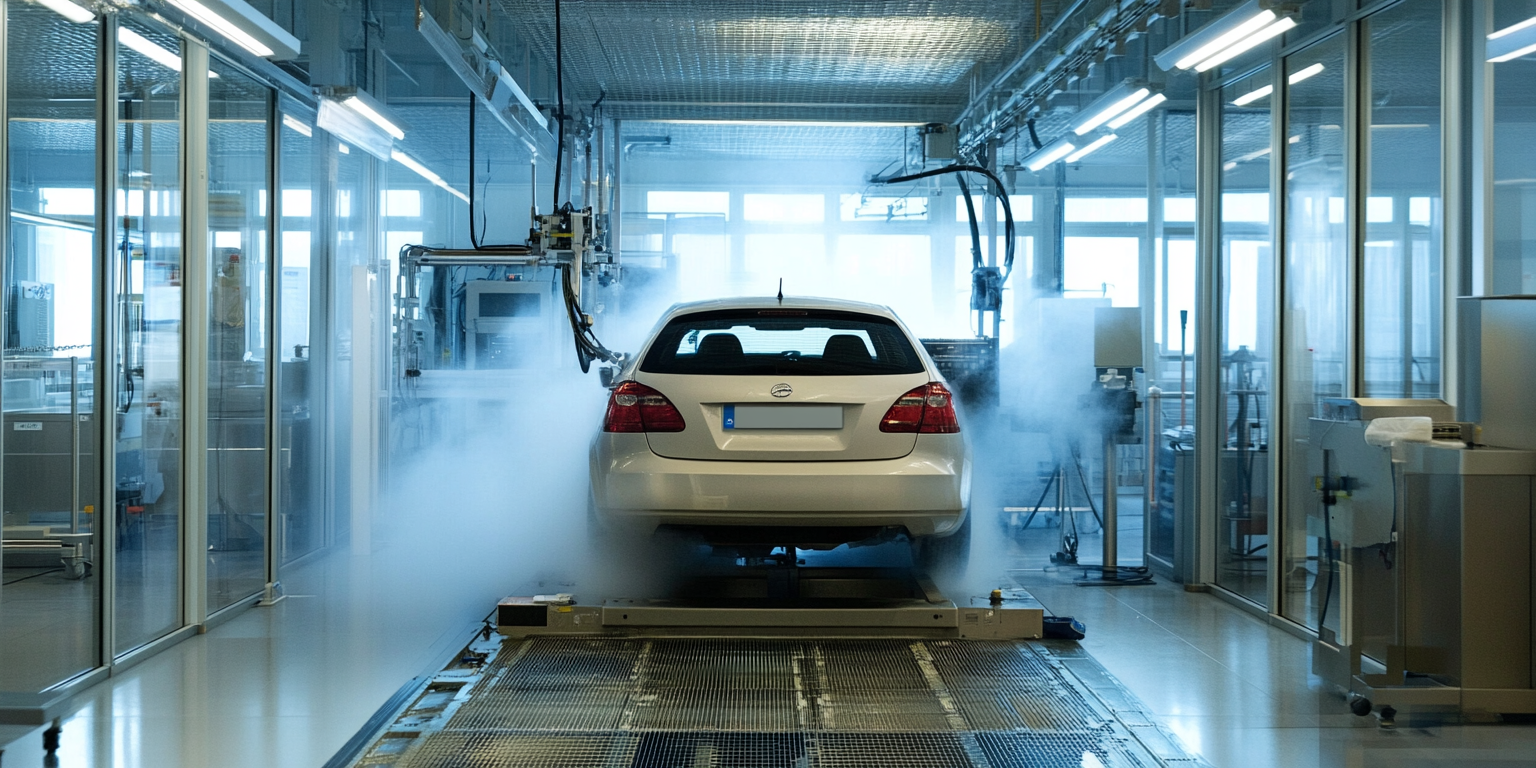Dieselgate: A Case Study in Car Crash Marketing
Few scandals in modern business history have left as indelible a stain on a company’s reputation as “Dieselgate”, the diesel emissions debacle primarily involving Volkswagen (and others). While the technical details of the scandal revolved around emissions cheating, Dieselgate also stands as a cautionary tale of what could be called “car crash marketing.”
Note:
This article features content from the Marketing Made Clear podcast. You can listen along to this episode on Spotify:
Dieselgate: The Ultimate Car Crash Marketing Scandal
When it comes to corporate scandals, few can rival the scale, audacity, and sheer duplicity of Volkswagen’s “Dieselgate.” While many marketing failures are defined by missteps or miscalculations, Dieselgate is a potent example of something far more insidious (I love that word, it gives me chills): a corporate cover-up so egregious it detonated the brand’s integrity, destroyed consumer trust, and created an industry-wide crisis. This was more than just a technical or legal scandal, it was a full-blown marketing disaster that exposed the dangers of corporate deception and the deep, sometimes murky, role marketing can play in reinforcing a company’s misleading narratives.
The Scandal Unfolds: Lies Disguised as “Clean Diesel”
The Dieselgate saga began in September 2015, when the United States Environmental Protection Agency (EPA) revealed that Volkswagen had been using defeat device software in its diesel cars. This software was designed to detect when a vehicle was undergoing an emissions test, temporarily reducing emissions to pass regulatory standards. Once the car was back on the road, the software would switch off, allowing the car to emit up to 40 times the legal limit of nitrogen oxides, pollutants linked to severe environmental and public health risks.
Volkswagen’s dishonesty was staggering. For years, they had aggressively marketed their diesel vehicles as “clean” and environmentally friendly, positioning themselves as a responsible, forward-thinking company.
Sexy, right?
Except it wasn’t just naughty… it was criminal.
This wasn’t a small mistake or oversight; it was a deliberate, calculated deception aimed at selling cars that were polluting the air and damaging the environment, all while pretending to be green.
The extent of the scandal was jaw-dropping: 11 million vehicles worldwide had been equipped with the defeat device, and Volkswagen agreed to a U.S. settlement of up to $14.7 billion, while the global costs have been estimated at over $30 billion. As if the financial damage wasn’t enough, the brand’s reputation was left in tatters, a fate no amount of marketing magic could reverse.

The Role of Marketing: Complicit or Victimised?
Dieselgate begs a critical question for the marketing community: did Volkswagen’s marketing department know about the cheating?
After all, these cars were sold as eco-friendly alternatives in a world increasingly concerned about climate change and environmental degradation. Their advertising campaigns portrayed Volkswagen as a champion of green technology, with slogans like “Clean Diesel” proudly emblazoned across TV screens, billboards, and glossy magazine spreads.
Whether or not the marketing department knew about the emissions rigging is almost irrelevant at this point. What matters is that they were the mouthpiece of the deception!
Every advertisement and campaign pushed the lie further, embedding it into the consumer consciousness that VW was the good guy in a world of dirty automakers. In hindsight, it feels almost Machiavellian (another spine tingler): a brand that cultivated trust and goodwill while secretly acting like Dr. Evil behind closed doors.
How ’bout No Scotty.
Marketing, in this case, became the conduit for a colossal lie. Whether the team knew or was kept in the dark, they were selling a fantasy built on falsehoods, making them both complicit and victims in one of the greatest corporate scandals of modern times.

A Crash That No PR Spin Could Fix
Volkswagen’s Dieselgate scandal was a public relations nightmare, and no amount of corporate spin or crisis management could sweep it under the rug. The fallout was immediate and severe: VW executives resigned in disgrace, including CEO Martin Winterkorn, and several others faced criminal charges, including Oliver Schmidt, who was sentenced to seven years in prison in the United States. The company’s stock tanked, consumers were outraged, and lawsuits piled up worldwide.
No matter how expertly crafted their PR responses, no amount of contrition or carefully worded statements could undo the damage. Dieselgate was a classic example of car crash marketing, a brand that had crashed headfirst into a wall of its own making, and the wreckage was impossible to ignore. Trust, once broken, is nearly impossible to regain, and VW found itself on a long and arduous road to redemption.

The Ripple Effect: A Domino of Deception
Dieselgate was not an isolated incident. Once Volkswagen’s deception was exposed, other automakers fell under scrutiny. Fiat Chrysler, Renault, and Mercedes-Benz faced similar allegations of emissions test manipulation, revealing that this was a widespread problem in the industry. What Dieselgate unveiled was a systemic issue, a culture of cutting corners, lying to regulators, and misleading customers all in the name of profit.
This widespread deception forced governments and regulatory bodies to tighten emissions testing procedures, introducing real-world driving tests to ensure that vehicles couldn’t pass tests in labs only to become major polluters on the road. Dieselgate also prompted a broader conversation about corporate responsibility and the need for greater accountability in the automotive industry.
The Greenwashing Mirage: Was It Worth It?
In the years leading up to Dieselgate, Volkswagen’s marketing strategy was, ironically, its downfall. The company positioned itself as the eco-conscious leader in an increasingly environmentally aware world. Their greenwashing: the practice of making misleading claims about the environmental benefits of a product or company, was not just marketing sleight of hand, it was outright deception.
Dieselgate was a particularly insidious example of greenwashing because it played on the growing concerns about climate change. Consumers genuinely wanted to make environmentally responsible choices, and Volkswagen took advantage of that, selling them dirty cars wrapped in a false green bow. The scandal obliterated any goodwill VW had cultivated with its marketing campaigns, leaving customers feeling betrayed and enraged.

Is Dieselgate a Marketing Scandal? Absolutely.
While Dieselgate’s roots are undeniably technical, the scandal’s reach and impact are inherently marketing failures. Volkswagen’s brand was built on a lie, and their marketing department—whether they knew it or not—was the instrument of that lie. They sold millions of vehicles based on false premises, undermining consumer trust and damaging the very foundation of their reputation.
Dieselgate isn’t just about emissions tests, it’s about the dangers of unethical corporate behaviour cloaked in slick marketing. It’s about what happens when a company’s values are misaligned with its actions, and the profound consequences of marketing a lie to the world. For Volkswagen, the damage will take decades to repair, if it can be repaired at all.
A Hollow Victory for Consumers
If there’s any solace to be found in the wake of Dieselgate, it’s that the scandal forced a reckoning within the auto industry. Regulatory frameworks became more stringent, and the push toward cleaner, more sustainable transportation options, such as electric vehicles, gained momentum. In some ways, Dieselgate accelerated the EV revolution, as consumers turned away from diesel and demanded cleaner alternatives.
Yet, even this silver lining is tainted by the fact that it took a massive corporate deception to get there. Consumers didn’t win a moral victory, they were collateral damage in a scandal that exposed just how far corporations like Volkswagen are willing to go in pursuit of profit.
Conclusion: The True Cost of Deception
Dieselgate remains one of the most egregious examples of car crash marketing in history. Volkswagen’s decision to prioritise profits over integrity shattered their reputation and unleashed a ripple effect of industry-wide deception. Their marketing team, knowingly or not, became the unwitting voice of this fraud, selling consumers a fantasy that masked the environmental reality.
Ultimately, Dieselgate is a stark reminder of the dangers of unchecked corporate power and the critical role marketing plays in shaping consumer perceptions. Trust, once broken, is nearly impossible to rebuild. Volkswagen’s road to redemption will be long and arduous, and the lessons from Dieselgate should serve as a warning to every brand: deception always leads to disaster, no matter how good the marketing is.


